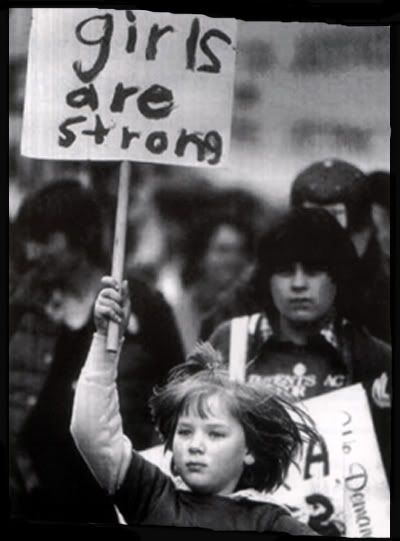 A few weeks ago I spent the evening (and a lot of the night!) rereading Julia Alvarez's In the Time of the Butterflies. I had forgotten how devastating and amazing this book is.
A few weeks ago I spent the evening (and a lot of the night!) rereading Julia Alvarez's In the Time of the Butterflies. I had forgotten how devastating and amazing this book is.In the Time of the Butterflies tells a fictionalized version of the lives of the Mirabal sisters -- Patria, Minerva and María Teresa -- who were assassinated for their resistance to Dominican dictator Rafael Trujillo on November 25th 1960, when they were killed on a lonely mountain pass on the way home from visiting their incarcerated husbands. Alvarez's retelling begins in the 1930s when the sisters are very young and switches the point of view of each chapter to a different Mirabal sister, including Dedé Mirabal, the only sister still alive. Alvarez emphasizes the humanity of these women who have become larger-than-life figures -- María Teresa is only 10 when her first chapter begins. She tells her Little Book:
"I don't know if you realize how advanced I am for my age? ... I knew how to read before I even started school! ... My penmanship is also very pretty as you will have noticed. I've won the writing prize twice, and I would have this week, too, but I decided to leave some i's undotted. It doesn't help with the other girls if you are best all the time."From childhood scribblings to the retellings of their imprisonment, gun-smuggling, near misses with Trujillo, and eventual deaths, Alvarez's book is beautiful and absolutely devastating. It reminds me of Kelly Tsai's poem, "Little Red Books:"
"my friend signs off all his emails / siempre luchando / paz y revolucion / as if the two were possible / peace and revolution / as if bloodless wars didn't still tear psyches apart / change hurts / living it is hard / we've got to be ready / if we decide to / zhan qi lai / stand up / zhan qi lai / zhan qi lai."It's easy to deify activists like the Mirabals. It's easy to glorify their actions and call for a revolution, but we do them a disservice by forgetting their humanity and the horror of what they went through in the backlash to their actions. In her postscript, Alvarez says:
"What you will find here are the Mirabals of my creation, made up but, I hope, true to the spirit of the real Mirabals... For I wanted to immerse my readers in an epoch in the life of the Dominican Republic that I believe can only finally be understood by fiction, only finally be redeemed by the imagination. A novel is not, after all, a historical document, but a way to travel through the human heart."I feel like this is the moral calling of great fiction and poetry -- to demonstrate the passion, terror, devastation, humanity and beauty in historical events that have been trammeled into bloodless factoids of banal, dispassionate textbooks.
A few months ago while looking for a book for my students to read that month I was struck by the inability of kids biographies to make their subjects passionate, interesting and human to their readers. My students and I had just finished reading Twelve Rounds to Glory, which is an illustrated biography of Muhammad Ali written in poetry. It fucking rocked because it was passionate and creative and talked seriously about racism and my students were friggin INTO IT. So I was looking for something similarly awesome and passionate about a woman of color for the next month, but nooOOOooo. Everything was stale non-fiction bore-the-pants off you crap. And about awesome people like Sojourner Truth and Harriet Tubman and Daisy Bates. I want fantastic kids biographiess about the Mirabals and Audre Lorde and Gloria Anzaldua. Imagine if, after talking to my boys about their sexist behavior and trying to convince them that girls are strong, we could all read a biography of the Mirabal sisters.



